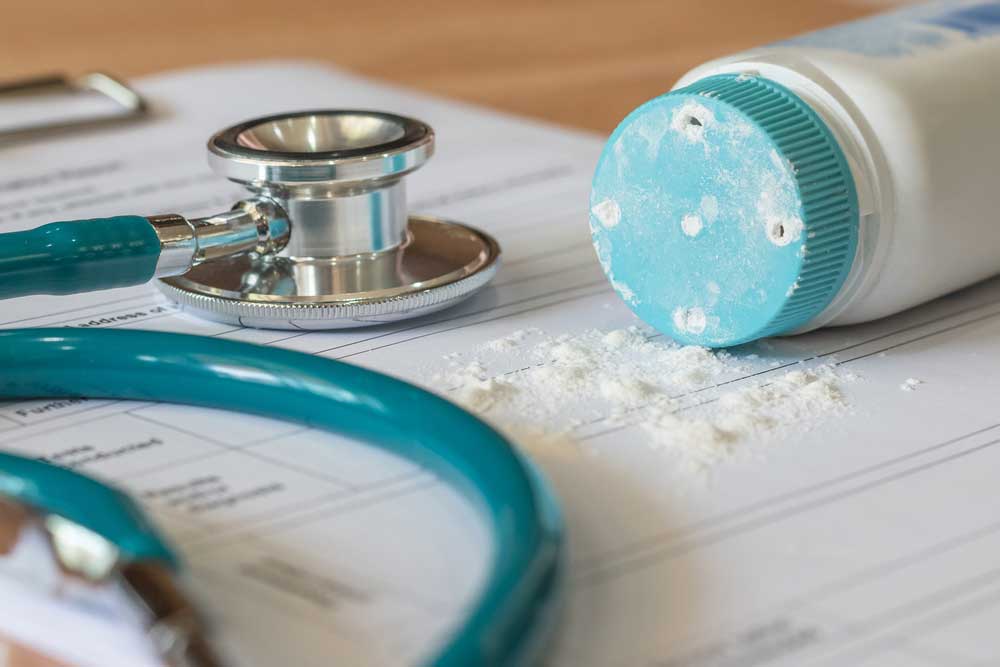Research finds talc doesn’t cause cancer; juries disagree
Two lawsuits ended in jury verdicts worth $127 million. Two others were tossed out by a judge who said there wasn’t reliable evidence that the talc in Johnson & Johnson’s iconic baby powder causes ovarian cancer. So who’s right? And is baby powder safe?
Most research finds no link or a weak one between ovarian cancer and using baby powder for feminine hygiene, a practice generations of American mothers have passed on to their daughters. Most major healthgroups have declared talc harmless. Johnson & Johnson, whose baby powder dominates the market, says it’s perfectly safe.
Yet some 2,000 women have sued, and lawyers are reviewing thousands of other potential cases, most generated by ads touting the two big verdicts. Meanwhile, another trial begins this week.
A look at the issue:
WHAT IS TALC?
Talc is a mineral that is mined from deposits around the world, including the U.S. The softest of minerals, it’s crushed into a white powder. It’s been widely used in cosmetics and other personal care products to absorb moisture since at least 1894, when Johnson & Johnson’s Baby Powder was launched. But it’s mainly used in a variety of other products, including paint and plastics.
Read more from Fox News Health on Research finds talc doesn’t cause cancer; juries disagree.







